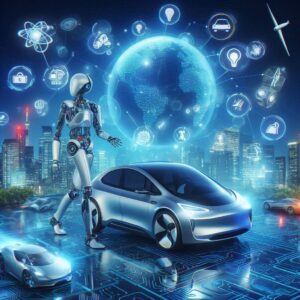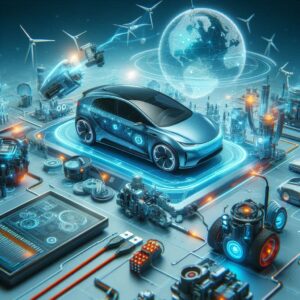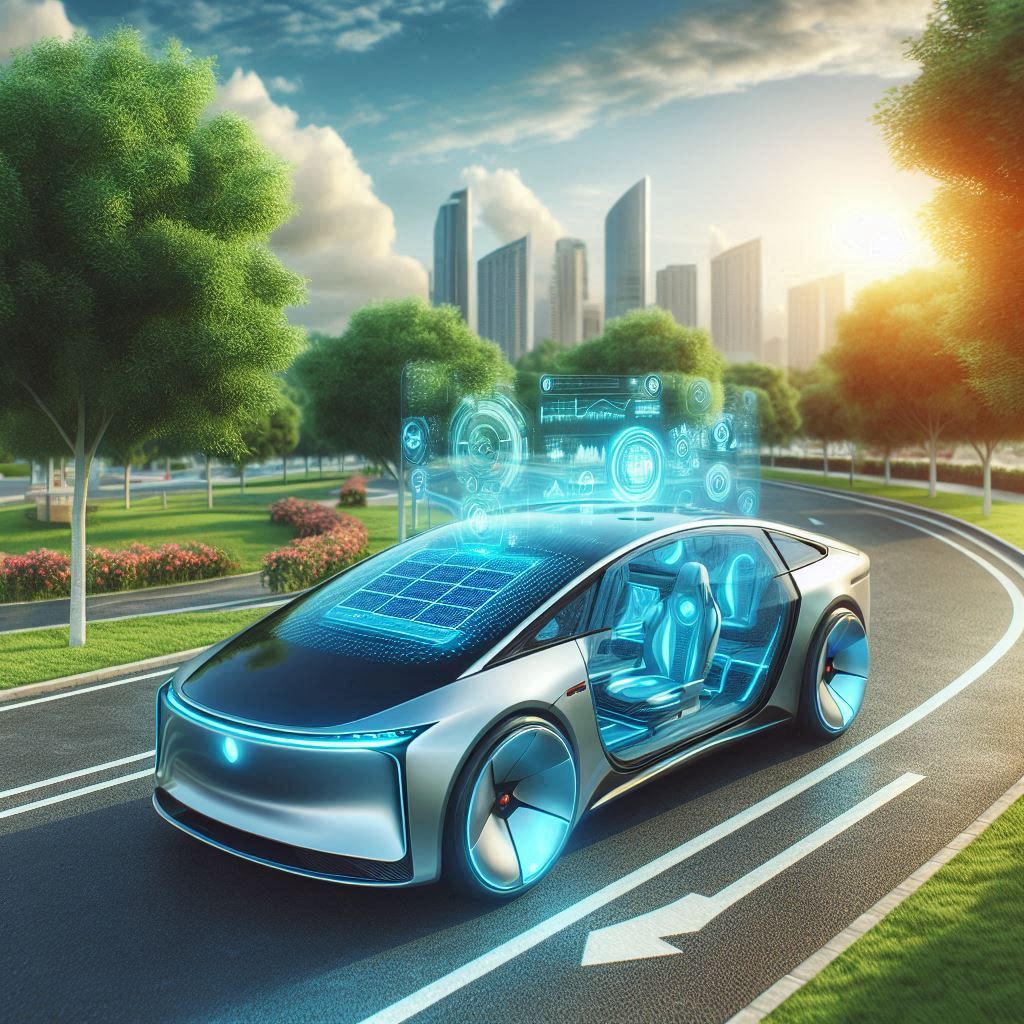The future of electric cars: innovations and trends shaping the vehicles of tomorrow
Electric cars are no longer a niche product – they are fast becoming the future of transportation. As the automotive industry undergoes a significant shift towards sustainability and innovation, electric vehicles (EVs) are at the forefront of this transformation. In this blog, we will explore the future of electric cars, discussing emerging trends, advanced technologies, and how they are set to revolutionise the way we drive.
The future of electric cars: Key trends to watch
The electric vehicle market is evolving very rapidly, with several trends set to define the future:
Extended range and faster charging
One of the biggest challenges faced by early EVs was limited range and slow charging times. However, electric cars of the future are expected to overcome these issues with advancements in battery technology. Companies like Tesla, Rivian and others are investing in new solid-state batteries that can deliver a longer range of up to 600 miles on a single charge – while reducing charging time to as little as 10 minutes.
Autonomous Driving and AI Integration
Electric vehicles are leading the way in the development of autonomous driving technology. In the near future, we can expect to see electric cars equipped with Level 4 and Level 5 autonomy, which means they will be able to drive without any human intervention. This will not only make transportation safer but also more efficient. AI-powered systems will optimize routes, reduce traffic congestion and even predict maintenance needs, leading to a seamless, more enjoyable driving experience.
Sustainable Materials and Circular Economy
- As the world moves towards a greener future, the materials used in the manufacturing of electric vehicles are also evolving. Automakers are increasingly adopting sustainable materials like recycled metals, biodegradable composites and eco-friendly fabrics. The push towards a circular economy, where components from old vehicles are reused in new models, is gaining momentum. This reduces waste and lowers the environmental impact of EV production.



Wireless Charging and Smart Grid
The future of electric car charging is wireless. Imagine you park your car on a charging pad and it charges automatically without having to plug in any cables. Wireless charging technology is already in development and will soon become mainstream, bringing more convenience to EV owners. Additionally, smart grid integration will allow electric cars to communicate with the power grid, charge during off-peak hours, and even return unused energy to the grid.
Affordable Electric Cars
- As the technology advances and production increases, the cost of electric vehicles is expected to come down. Over the next decade, we will see affordable electric cars that will rival traditional gas-powered vehicles in terms of price, making EVs accessible to more and more people. Companies like Nissan and Chevrolet are already working on budget-friendly models that offer long-range capabilities without compromising on features.
The role of governments in the future of EVs
Government policies and regulations will play a key role in shaping the future of electric cars. Many countries have already announced plans to ban the sale of new gasoline and diesel vehicles by 2035, further accelerating the shift to electric mobility. Governments are also offering incentives such as tax credits, rebates, and subsidies to encourage EV adoption.
In addition, the development of robust charging infrastructure is crucial for the widespread adoption of electric cars. Public and private investments in charging networks will ensure that EV owners have access to fast and convenient charging stations, whether they are at home, at work, or on the road.
Benefits of electric cars for consumers
For consumers, the future of electric cars offers several benefits:
Lower operating costs: Electric cars are cheaper to maintain, have fewer moving parts, and lower fuel costs than conventional vehicles.
Zero emissions: EVs produce no tailpipe emissions, reducing air pollution and helping to combat climate change.
Quiet and smooth driving: Electric motors offer a quiet, smooth and powerful driving experience with instant torque and no engine noise.
What’s next for electric vehicles?
Looking ahead, the future of electric cars is bright. With advances in battery technology, charging infrastructure and autonomous driving, EVs are set to dominate the automotive landscape in the coming years. Automakers are committed to electrifying their entire fleets, with brands like General Motors, Volkswagen and Volvo announcing plans to go fully electric by 2030.
| Invention | Status | Estimated Release Date |
| Fully Autonomous Vehicles | In development | 2025-2030 (widespread adoption) |
| Artificial General Intelligence (AGI) | Research phase | Uncertain (potentially decades away) |
| Quantum Computers (Practical Applications) | Research and development | 2030s (widespread commercial use) |
| Brain-Computer Interfaces (BCIs) for Consumer Use | Research and development | Early 2030s (initial consumer products) |
| Hyperloop Transportation | Development and testing | Late 2020s (initial commercial routes) |
| Advanced Materials (e.g., Graphene, Aerogel) | Research and development | Ongoing (various applications) |
| Personalized Medicine (Based on Genetic Data) | Research and development | 2020s (increasingly widespread) |
| Sustainable Energy Solutions (e.g., Fusion Power) | Research and development | Uncertain (long-term goal) |
| Space Tourism | Development and testing | Early 2020s (initial commercial flights) |
| Enhanced Reality (Combining AR and VR) | Development and testing | Mid-2020s (consumer products) |
As electric cars become more affordable, convenient and sustainable, they will play a vital role in transforming transportation and reducing our carbon footprint.



